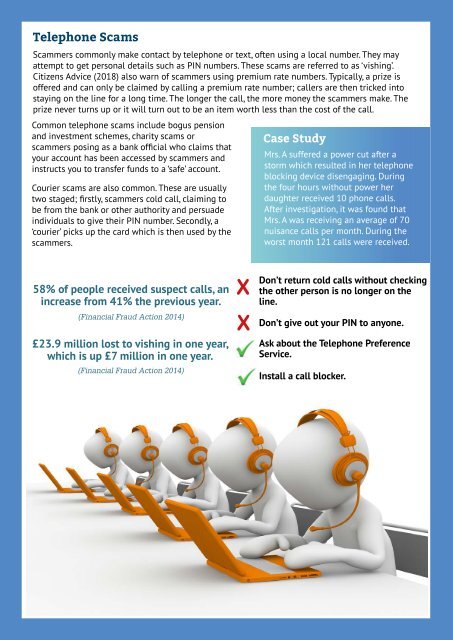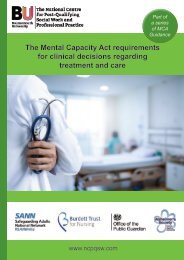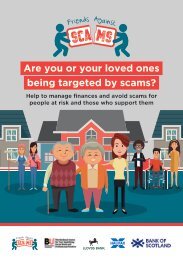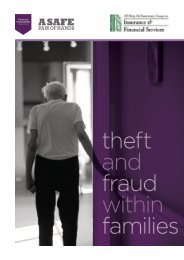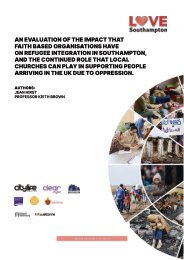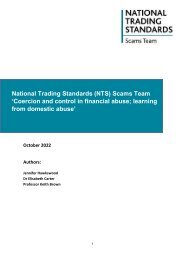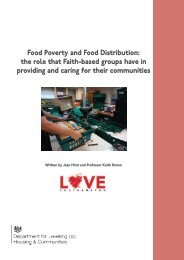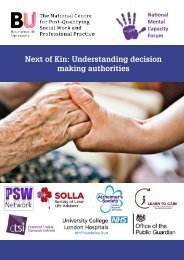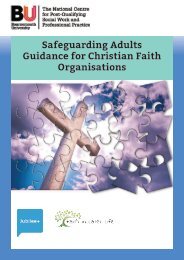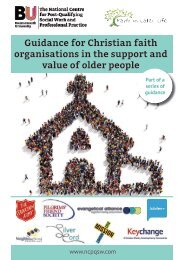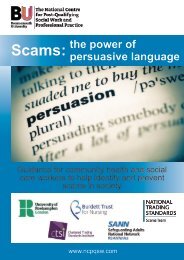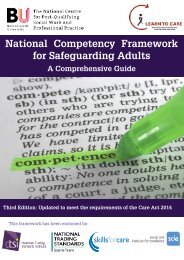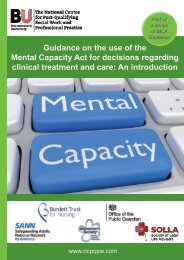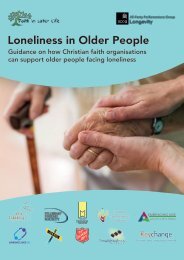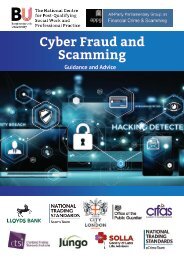Financial Scamming and Fraud
Financial scamming and its impact have been receiving a higher public profile in recent months, yet though it is recognised as a growing problem, there is a lack of clear research and evidence into the scale of the problem, its causes and the impact on the public.
Financial scamming and its impact have been receiving a higher
public profile in recent months, yet though it is recognised as a
growing problem, there is a lack of clear research and evidence
into the scale of the problem, its causes and the impact on the
public.
Create successful ePaper yourself
Turn your PDF publications into a flip-book with our unique Google optimized e-Paper software.
Telephone Scams<br />
Scammers commonly make contact by telephone or text, often using a local number. They may<br />
attempt to get personal details such as PIN numbers. These scams are referred to as ‘vishing’.<br />
Citizens Advice (2018) also warn of scammers using premium rate numbers. Typically, a prize is<br />
offered <strong>and</strong> can only be claimed by calling a premium rate number; callers are then tricked into<br />
staying on the line for a long time. The longer the call, the more money the scammers make. The<br />
prize never turns up or it will turn out to be an item worth less than the cost of the call.<br />
Common telephone scams include bogus pension<br />
<strong>and</strong> investment schemes, charity scams or<br />
scammers posing as a bank official who claims that<br />
your account has been accessed by scammers <strong>and</strong><br />
instructs you to transfer funds to a ‘safe’ account.<br />
Courier scams are also common. These are usually<br />
two staged; firstly, scammers cold call, claiming to<br />
be from the bank or other authority <strong>and</strong> persuade<br />
individuals to give their PIN number. Secondly, a<br />
‘courier’ picks up the card which is then used by the<br />
scammers.<br />
Case Study<br />
Mrs. A suffered a power cut after a<br />
storm which resulted in her telephone<br />
blocking device disengaging. During<br />
the four hours without power her<br />
daughter received 10 phone calls.<br />
After investigation, it was found that<br />
Mrs. A was receiving an average of 70<br />
nuisance calls per month. During the<br />
worst month 121 calls were received.<br />
58% of people received suspect calls, an<br />
increase from 41% the previous year.<br />
(<strong>Financial</strong> <strong>Fraud</strong> Action 2014)<br />
£23.9 million lost to vishing in one year,<br />
which is up £7 million in one year.<br />
(<strong>Financial</strong> <strong>Fraud</strong> Action 2014)<br />
X<br />
X<br />
Don’t return cold calls without checking<br />
the other person is no longer on the<br />
line.<br />
Don’t give out your PIN to anyone.<br />
Ask about the Telephone Preference<br />
Service.<br />
Install a call blocker.


